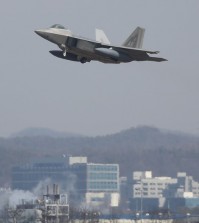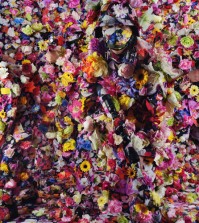- California Assembly OKs highest minimum wage in nation
- S. Korea unveils first graphic cigarette warnings
- US joins with South Korea, Japan in bid to deter North Korea
- LPGA golfer Chun In-gee finally back in action
- S. Korea won’t be top seed in final World Cup qualification round
- US men’s soccer misses 2nd straight Olympics
- US back on track in qualifying with 4-0 win over Guatemala
- High-intensity workout injuries spawn cottage industry
- CDC expands range of Zika mosquitoes into parts of Northeast
- Who knew? ‘The Walking Dead’ is helping families connect
Harmful substances found in Korean toothpastes
60% of toothpastes contain ‘harmful’ substances
By Jung Min-ho
More than 60 percent of all toothpastes in the Korean market contain potentially harmful substances that are banned in some parts of Europe and the United States, according to the Ministry of Food and Drug Safety, Sunday.
The ministry’s test showed 1302 of the total 2050 products contain parabens, a preservative used in some cosmetic and pharmaceutical products.
After Denmark banned parabens in lotions and other cosmetic products for children under 3 in 2010, the European Commission decided to follow suit early this year amid a controversy over its potential long-term harmful effects.
Also, 63 of the Korean toothpastes were found to contain triclosan. The antibacterial agent was banned early this year in hygiene products sold in Minnesota of the United States.
Some leading U.S. medical hospitals and companies have also abandoned the chemical.
Kaiser Permanente, a California-based health care consortium, is one of them. In 2010, it pulled triclosan from its 37 hospitals across the country, switching to traditional soaps and alcohol-based hand sanitizers.
Johnson & Johnson, one of the world’s biggest healthcare companies, has also pledged to remove triclosan from all of its adult products by the end of 2015. The company noted none of its baby products currently contain the ingredient.
The ministry currently allows 0.2 percent of parabens in a toothpaste. None of the toothpastes in Korea exceeded the limit.
The ministry has no regulations about the amount of triclosan.
Rep. Kim Jae-won from the ruling Saenuri Party said that the ministry is failing to regulate the substances despite growing concerns around the world.
According to the ministry, 16 side effect cases about parabens-contained toothpastes were reported last year, up from seven in 2012.
Opinions are divided among scientists about the effects of parabens and triclosan.
The U.S. Food & Drug Administration has said that parabens and triclosan are “not currently known to be hazardous to humans.”















